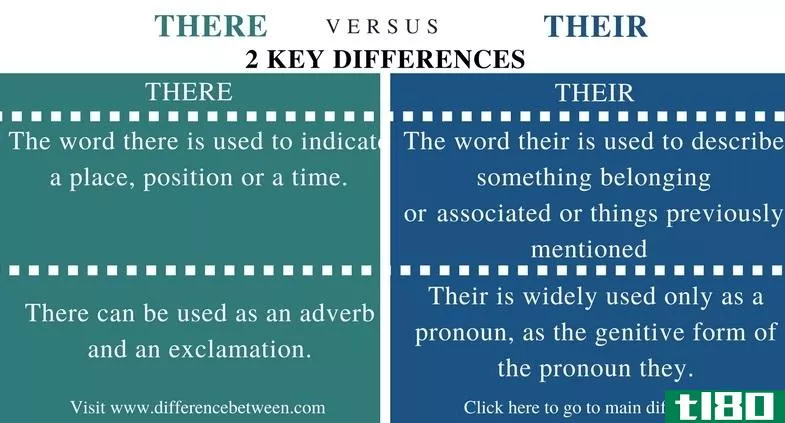如何让英语活下去(keep english alive)
新词是新创造的词、表达或用法。它也被称为货币。并非所有新词都是全新的。有些是旧词的新用法,而另一些是现有词的新组合。他们使英语保持活力和现代性。

许多因素决定了新词是否会留在语言中。作家罗德·埃文斯(Rod L.Evans)在2012年出版的《霸王龙法》(Barannosaurus Lex)一书中说:“很少有一个词会被普遍使用,除非它与其他词非常相似。”
什么品质有助于一个新词的生存?
Susie Dent在“语言报告:2000-2007年的英语迁移”中讨论了是什么使一个新词成功,以及一个有很好机会继续使用的新词。
"In the 2000s (or the noughties, oughties, or zips), a newly minted word has had an unprecedented opportunity to be heard beyond its original creator. With 24-hour media coverage, and the infinite space of the internet, the chain of ears and mouths has never been longer, and the repetition of a new word today takes a fraction of the time it would have taken 100, or even 50, years ago. If, then, only the smallest percentage of new words make it into current dictionaries, what are the determining factors in their success?" "Very roughly speaking, there are five primary contributors to the survival of a new word: usefulness, user-friendliness, exposure, the durability of the subject it describes, and its potential associations or extensions. If a new word fulfills these robust criteria it stands a very good chance of inclusion in the modern lexicon."何时使用新词
以下是2010年《经济学人风格指南》中关于新词何时有用的一些建议。
"Part of the strength and vitality of English is its readiness to welcome new words and expressions and to accept new meanings for old words." "Yet such meanings and uses often depart as quickly as they arrived." "Before grabbing the latest usage, ask yourself a few questions. Is it likely to pass the test of time? If not, are you using it to show just how cool you are? Has it already become a cliché? Does it do a job no other word or expression does just as well? Does it rob the language of a useful or well-liked meaning? Is it being adapted to make the writer's prose sharper, crisper, more euphonious, easier to understand—in other words, better? Or to make it seem more with it (yes, that was cool once, just as cool is cool now), more pompous, more bureaucratic or more politically correct—in other words, worse?"英语应该摒弃新词吗?
布兰德·马修斯(Brander Matthews)在1921年出版的《英语随笔》一书中评论了禁止语言进化的观点。
"Despite the exacerbated protests of the upholders of authority and tradition, a living language makes new words as these may be needed; it bestows novel meanings upon old words; it borrows words from foreign tongues; it modifies its usages to gain directness and to achieve speed. Often these novelties are abhorrent, yet they may win acceptance if they approve themselves to the majority. This irrepressible conflict between stability and mutation and between authority and independence can be observed at all epochs in the evolution of all languages, in Greek and in Latin in the past as well as in English and in French in the present." "The belief that a language ought to be 'fixt,' that is, made stable, or in other words, forbidden to modify itself in any way, was held by a host of scholars in the 17th and 18th centuries. They were more familiar with the dead languages, in which the vocabulary is closed and in which usage is petrified, than they were with the living languages, in which there is always incessant differentiation and unending extension. To 'fix' a living language finally is an idle dream, and if could be brought about it would be a dire calamity. Luckily language is never in the exclusive control of scholars; it does not belong to them alone, as they are often inclined to believe; it belongs to all who have it as a mother-tongue."- 发表于 2021-10-08 20:57
- 阅读 ( 227 )
- 分类:语言
你可能感兴趣的文章
居住(live)和活着的(alive)的区别
...这个词的意思是‘警觉、活跃;活跃’,这是根据《牛津英语词典》的定义。从这个意义上说,这句话的意思是“当她开始阅读时,她变得机警而活跃。”在第三句话中,alive这个词的意思是“蜂拥而至”,所以这个句子的意思...
- 发布于 2020-10-23 01:11
- 阅读 ( 163 )
书面英语(written english)和英语口语(spoken english)的区别
书面英语(written english)和英语口语(spoken english)的区别 人们可以清楚地看出书面英语和口语之间的各种不同之处,因为有许多因素可以观察到明显的对比。书面英语是指人们在文本和其他此类材料中注意到的英语。口语是人们...
- 发布于 2020-10-28 18:15
- 阅读 ( 829 )
那里(there)和他们的英语语法(their in english grammar)的区别
...,他们只用作代词。 那里(there)和他们的英语语法(their in english grammar)的共同点 在那里和它们的发音相似,它们被称为同音异义词。 他们和他们经常一起用在句子中。 那里(there)和他们的英语语法(their in english grammar)的区别 ...
- 发布于 2020-11-06 17:00
- 阅读 ( 391 )
活着的(alive)和居住(live)的区别
...e alive) vs. 居住(live) Live and alive may sound and look alike to many English learners. Live means to exist; it is the opposite of die. Live is a verb, and the noun form of live is life. Alive is the adjectival form of live. Therefore, the main difference between alive and live is that alive is...
- 发布于 2021-06-27 23:36
- 阅读 ( 160 )
古英语(old english)和中古英语(middle english)的区别
...程向我们讲述了几百年来英语是如何变化的。古英语(old english) vs. 中古英语(middle english)古英语和中古英语的区别在于时间轴。古英语大约始于5世纪,而中古英语直到11世纪末才开始。比较参数古英语中古英语分类古英语还可以...
- 发布于 2021-07-10 09:32
- 阅读 ( 443 )
如何让秋天的毛虫活到春天(keep fall caterpillars alive until spring)
养一条你收集的秋天的毛虫并让它在冬天存活是很容易的。通过了解您拥有的是哪种类型的毛毛虫,并了解在您的护理下它将经历哪些生命周期,您可以在任何季节为您的毛毛虫提供一个安全的家。 照顾蜕变的毛虫 在一年...
- 发布于 2021-09-13 03:08
- 阅读 ( 264 )
什么是英语中的同位语?(allophones in english?)
不熟悉英语的学生经常会遇到发音不同的字母,这取决于它们在单词中的使用方式。这些声音被称为异音。 语言学101 为了理解异音词及其功能,有助于对语言学、语言研究和音位学(或语音在语言中的功能)有一个基本的...
- 发布于 2021-09-23 13:29
- 阅读 ( 195 )
如何用英语表达悲伤(express sadness in english)
有些日子不如其他日子好,事实上,有时你可能会感到悲伤。学习如何表达你的感受对你的日常生活非常重要。掌握正确的词汇可以帮助你度过悲伤,也可以让别人知道你的感受。它还将帮助你学会当别人不开心时该说什么。 ...
- 发布于 2021-09-24 19:31
- 阅读 ( 281 )
英语语法中的主语
...(“树皮!”)。它的词源来自拉丁语“to-throw”。 如何识别主题 “确定句子主语的最清晰的方法是将句子变成是非问题(我们指的是可以用‘是’或‘否’回答的问题)。在英语中,问题是通过主语和其后的第一个动词之...
- 发布于 2021-09-25 10:42
- 阅读 ( 205 )
什么是英语中的省略?(elision in the english language?)
... govern which sounds may be elided and which may not. Elision of vowels in English usually happens when a short, unstressed vowel occurs between voiceless consonants, e.g. in the first syllable of perhaps, potato, the second syllable of bicycle, or the third syllable of philosophy." "It is very ...
- 发布于 2021-10-01 10:33
- 阅读 ( 281 )















